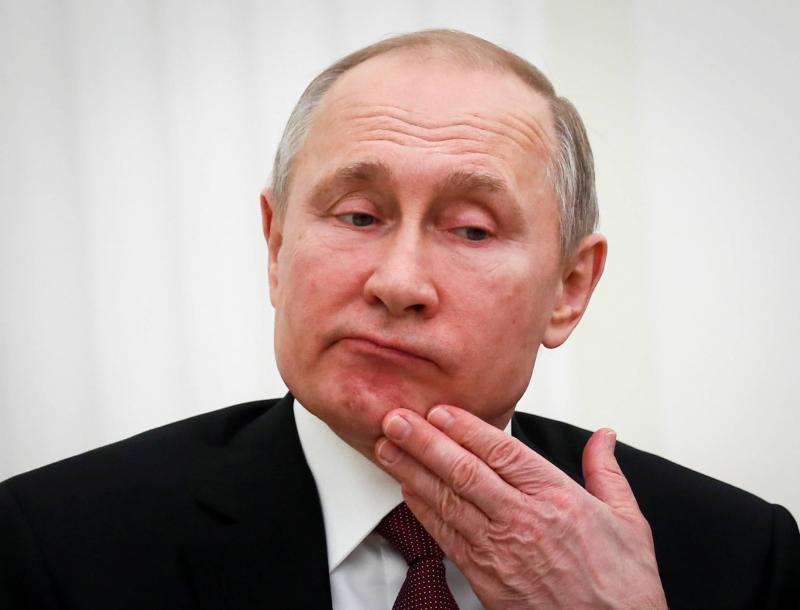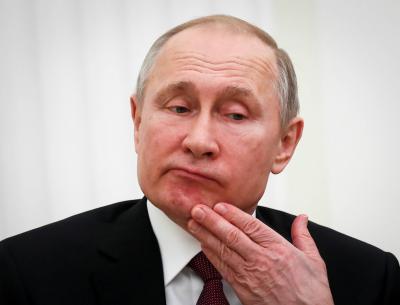We might not see Russian President Vladimir Putin confined in a cell in The Hague anytime soon, but the arrest warrant against him for committing war crimes could hinder his ability to travel freely and meet with world leaders who may feel less inclined to meet a man wanted for justice. Putin is the third sitting head of state to face charges from the International Criminal Court (ICC). Here’s a look at the potential consequences the Kremlin leader could face.
**What is the case?**
The ICC accuses Putin of being responsible for committing a war crime involving the deportation of Ukrainian children, with at least hundreds, if not more, moved to Russia. The Kremlin hastened to reject these accusations, with the Russian Foreign Minister stating that ICC decisions "hold no meaning for our country, including from a legal standpoint."
**Travel Abroad**
The 123 member states of the ICC are obligated to arrest and transfer Putin if he sets foot on their territories. Russia, China, the United States, and India are not ICC members. India is hosting a summit later this year for G20 leaders, including Russia. The permanent war crimes court was established under the Rome Statute, a treaty ratified by all EU nations, as well as Australia, Brazil, Britain, Canada, Japan, Mexico, Switzerland, 33 African countries, and 19 nations in the South Pacific. Russia signed the Rome Statute in 2000 but withdrew its support in 2016 after the ICC classified Moscow's annexation of Ukraine's Crimea as an armed conflict. According to Eva Vukosavich, an assistant history professor at Utrecht University, "Putin is not foolish. He won't travel abroad to a country where he could be arrested." She added, "He likely won't be able to travel anywhere other than countries that are either clearly allied with or at least somewhat allied with Russia."
**Previous ICC Experience**
Former Sudanese President Omar al-Bashir and the late Libyan leader Muammar Gaddafi are the only leaders charged by the ICC while in power. The charges against Gaddafi were dropped after he was overthrown and killed in 2011. Al-Bashir, accused in 2009 of committing genocide in Darfur, remained in power for an additional ten years until he was ousted in a coup. Since then, he has been tried in Sudan for other crimes but has not been handed over to the ICC. During his time in office, al-Bashir traveled to several Arab and African countries, including ICC member states such as Chad, Djibouti, Jordan, Kenya, Malawi, South Africa, and Uganda, which rejected his detention. The ICC reprimanded those countries or referred them to the UN Security Council for non-compliance. The ICC has prosecuted a former head of state after leaving office; former Ivorian President Laurent Gbagbo was acquitted of all charges in 2019 after a three-year trial. Charges were brought against Kenyan President William Ruto and his predecessor Uhuru Kenyatta before their elections, but the charges against both men have since been dropped. Kenyatta is the only leader to have appeared before the ICC while still in office.
**Other Courts**
Apart from the ICC, several former leaders have been tried before other international courts. Among notable cases, the late Serbian leader Slobodan Milosevic was the first former head of state to appear before an international court since World War II when he was tried at a UN court for war crimes during the Balkan wars in the 1990s. He died during detention in 2006 before a verdict was reached. The Special Court for Sierra Leone, supported by the UN in The Hague, convicted former Liberian President Charles Taylor of war crimes in 2012, making him the first former head of state convicted of war crimes by an international court since the Nuremberg Trials for Nazi leaders after World War II. Former Kosovo President Hashim Thaci, a rival of Milosevic in the Balkan wars, left office after being indicted by the Kosovo war crimes court in The Hague. He is scheduled to stand trial next month.




